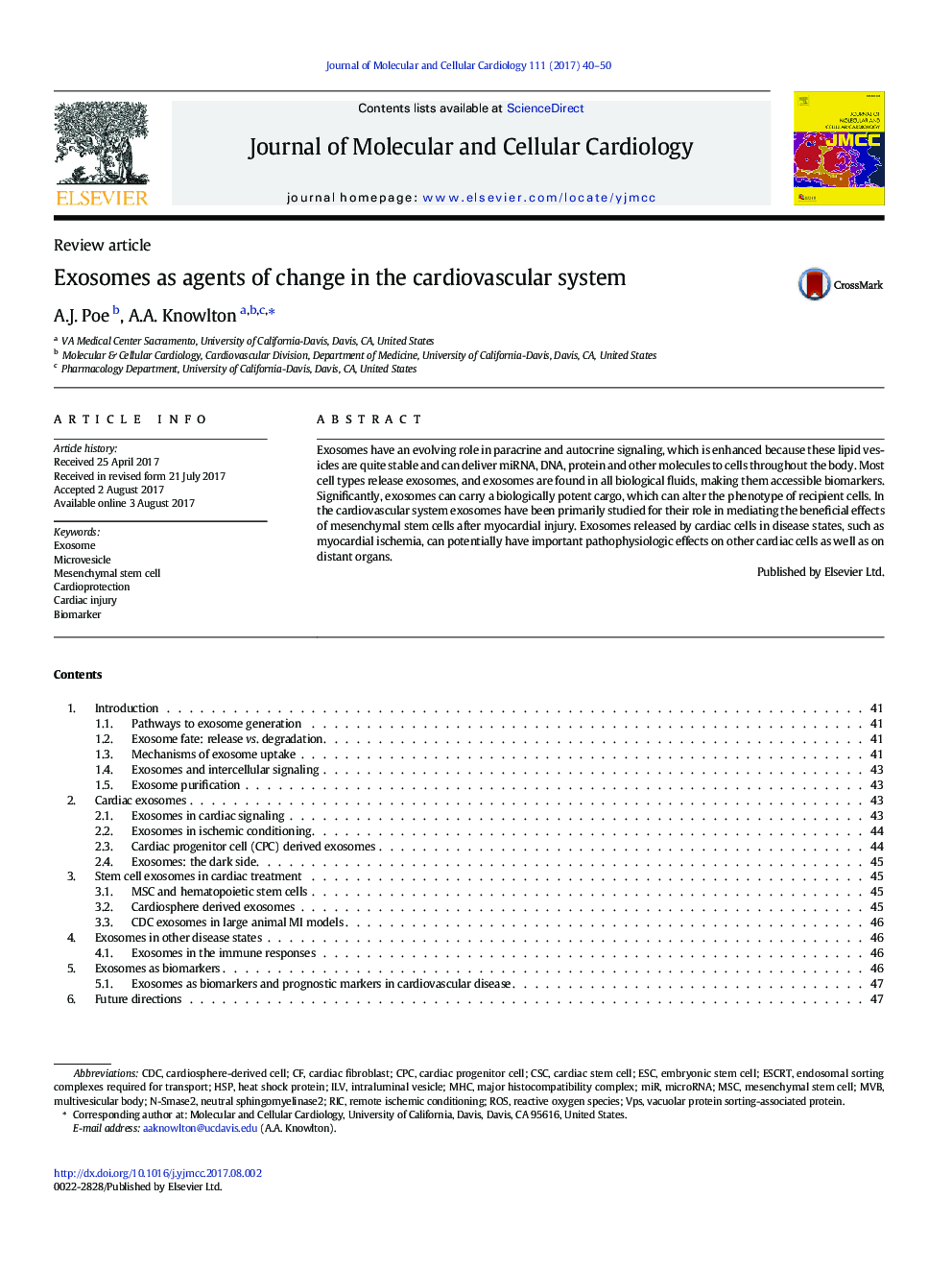| Article ID | Journal | Published Year | Pages | File Type |
|---|---|---|---|---|
| 5533621 | Journal of Molecular and Cellular Cardiology | 2017 | 11 Pages |
â¢Exosomes transfer active nucleic acids and proteins between cells and can alter cellular phenotypes.â¢Therapeutic benefits of stem cells in cardiac treatment mediated by exosomesâ¢Exosomes are promising as prognostic markers in cardiovascular disease.â¢Exosomes can be potentially manipulated to deliver targeted cargo to cells.
Exosomes have an evolving role in paracrine and autocrine signaling, which is enhanced because these lipid vesicles are quite stable and can deliver miRNA, DNA, protein and other molecules to cells throughout the body. Most cell types release exosomes, and exosomes are found in all biological fluids, making them accessible biomarkers. Significantly, exosomes can carry a biologically potent cargo, which can alter the phenotype of recipient cells. In the cardiovascular system exosomes have been primarily studied for their role in mediating the beneficial effects of mesenchymal stem cells after myocardial injury. Exosomes released by cardiac cells in disease states, such as myocardial ischemia, can potentially have important pathophysiologic effects on other cardiac cells as well as on distant organs.
